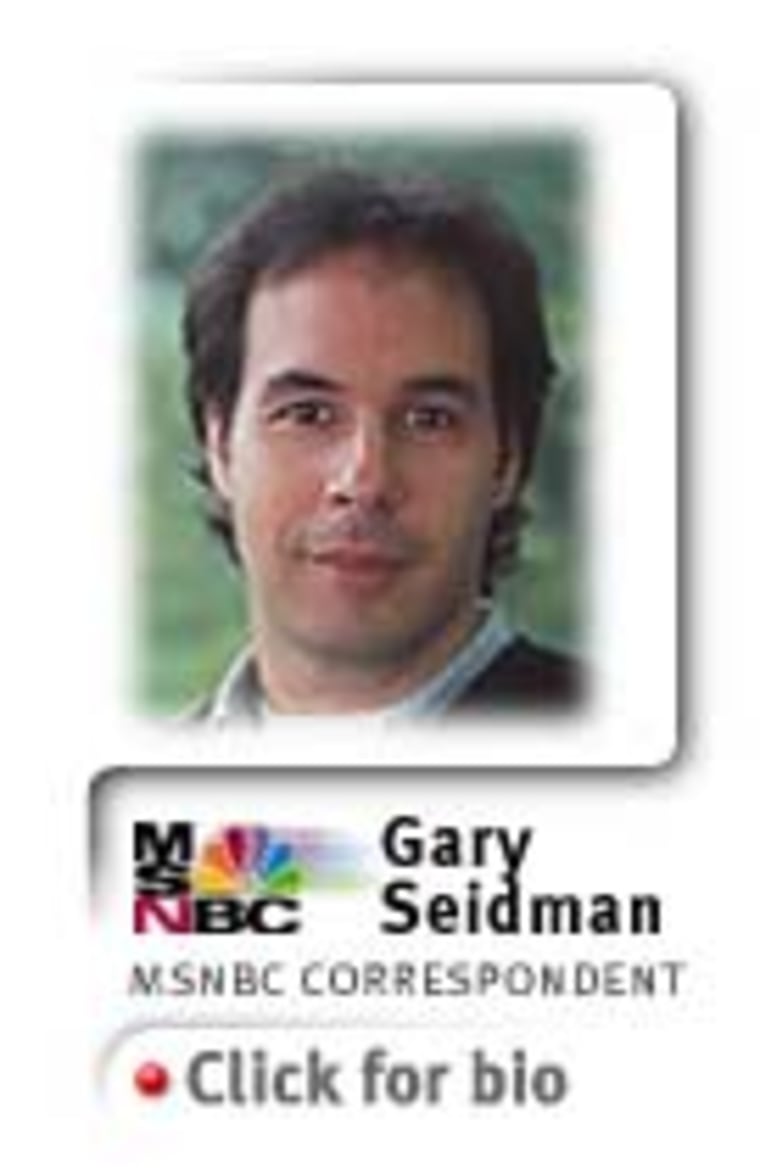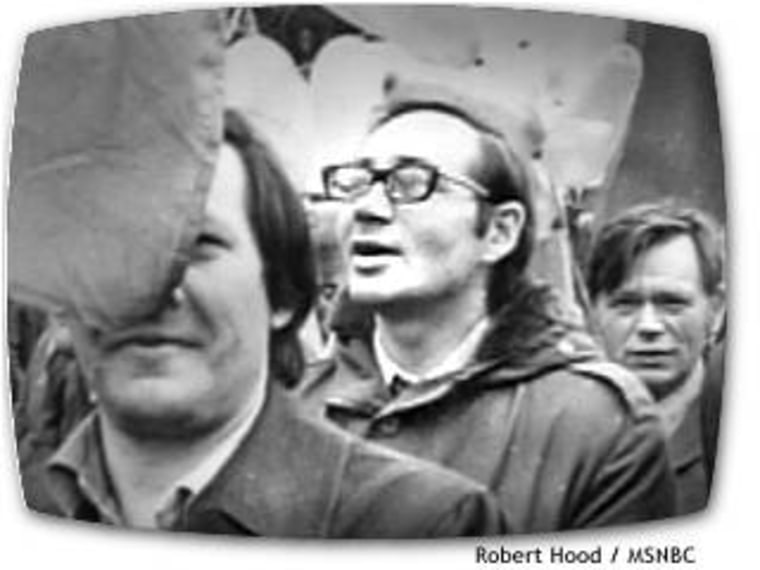The sad truth about Sasha Avrorin is that he is about as relevant to the “new Russia” as those towering Lenin statues that stand benignly in hundreds of village squares. And he may be as dumbfounded by his circumstances as old Vladimir Ilyich would be if he suddenly returned from the netherworld.

FOR 60-YEAR OLD Sasha Avrorin - a former nuclear physicist, who lived in semi-comfort under the Soviet empire - the reality is that his time has passed. The institutes and academies in this “academic city” where the Sashas of a decade ago worked on the Soviet Union’s most cutting-edge research have fallen into neglect. The country is near bankruptcy and political collapse, assuring a rocky future for a generation of scientists geared to a military-industrial nation and weaned on Khrushchev-era ideals.
Avrorin turns sentimental when he recalls those days. “When I came here, it was very romantic times for scientists,” he said.
That was back in 1962, when as a student and later as a young researcher he was swept up by the adrenaline of the space race and the innovations that, Avrorin admits, blinded him to the harshness of an era shifting towards the neo-Stalinism of Leonid Brezhnev’s reign.
“All the people were very young and very enthusiastic about science. We thought that if you work good, it will all be good,” he said in halting English.
Avrorin worked at an institute studying cosmic plasma engineering from 1966 to 1972, advancing through the ranks until a decade later he was appointed head of a division of 80 scientists at a geophysics institute.
Throughout that era, the system took good care of Avrorin and his kind; providing them with roomy apartments surrounded by birch and pine forests on the shores of the man-made Ob Sea. The atmosphere was conducive to conversation that didn’t have to be as guarded as at the institutes in Moscow and Leningrad and elsewhere in the country. Akademgorodok, after all, is 2,000 miles from the capital’s prying eyes. And yet, the university out here in Siberia was the envy of would-be scientists - the MIT of the Soviet Union.
By 1987, Avrorin had done so well that he was appointed deputy director of a prestigious institute. He headed to Lake Baikal - the world’s deepest lake - to lend his expertise on an environmental study. Life was good. Avrorin now had two apartments, respect in his field and a dependable paycheck, even if it bought little at the Soviet Union’s sparsely stocked stores.
But by 1992 - with the Soviet Union swept off the world’s stage and its successor’s economy in tatters - the money for research had run out, and Avrorin took a hard fall. “I was an old scientist.”
A LESSON IN CAPITALISM

In the three-room apartment that Avrorin shares with his wife Larissa, 52, and her mother Matilda, 85, he contends that perestroika was politically healthy for Russia even though financially catastrophic for him. “My salary was highest at the institute when I was deputy director. But during perestroika, I cannot buy shoes for my salary,” he said.
It was then, more out of desperation than desire, that the Avrorins made their first stab at a commercial enterprise.
Using Sasha Avrorin’s physics expertise and environmental experience, they joined with the local company Ecodom to produce energy efficient houses. Two homes were built as models and still stand today near Akademgorodok, but thus far the business has been a failure. “All the money that was paid from us for contractors was lost, all the money. And for two years we had not a salary from that company, for two years,” Sasha Avrorin said.
Russia is filled today with scientists and engineers who have invented things they can’t sell. Many of the products have little market value in the broader world. Others suffer from their owners’ lack of experience in an economy that has no resemblance to the Soviet Union’s paternalistic system.
“There were months,” Larissa Avrorina says, “we had no money coming in; maybe two months, maybe three months…”
“…Maybe 10 months,” interjects their son Dima, 31.
Since those days, the family has taken drastic actions. Two years ago, they sold the apartment near Lake Baikal for $15,000, and with that and a $2,000 loan, they made a bet on Dima’s career. The family bought a professional video camera, and Dima is now a partner in a film and video production house. Together, they pool their income - about $700 a month - among the family’s six members, which includes Dima’s wife and 9-year old son.
AGRARIAN ROOTS
Post-Soviet life is complex in Akademgorodok. A 40-minute walk from the Avrorin’s apartment, past some of the remaining 35 institutes and the university, is their dacha, a wooden shack on a small plot of land where they grow potatoes, carrots, strawberries and other fruits and vegetables. In the summer, Sasha comes here every day. “The garden is money for us because it is not necessary to buy,” Larissa said.
A pathway through a birch forest to the dacha is busy with traffic. Old men on shaky bicycles with boxes strapped to their fenders trundle down the hills in the shadow of the decaying institutes. It’s difficult to believe this was the military-industrial complex of Cold War legend that Americans feared so much.
For most in this Khrushchev-era academic paradise in the forest, making ends meet is a daily struggle. Aging scientists with obscure specialties that were of the highest national value during the height of Soviet power don’t compare on the open market with young computer programmers trained in Java.
Larissa Avrorina, who also worked at an Akademgorodok institute, said it wasn’t so long ago that she would avert her eyes when she passed a former colleague on the street. “I knew them at the institute when I worked,” she said. “But when I saw them on the street and they tried to sell a few potatoes, a few carrots, and so [on], it was very difficult.”
